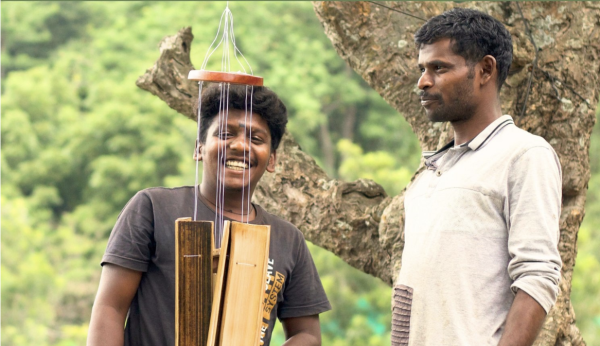BoJack Horseman: Accountability, Pain, and the Ability to Change
This article contains spoilers for BoJack Horseman, up to the final eight episodes.
Throughout its run, BoJack Horseman has focused on cycles of pain; the ways in which a person who has experienced trauma often ends up hurting other people. The show gave us multiple glimpses into the titular character’s traumatic childhood and helped us understand how those incidents shaped his unhealthy relationships with substances, sex, relationships, and power.
BoJack Horseman is an animated Netflix show that premiered in 2014. It follows a washed-up former family sitcom patriarch BoJack Horseman, who struggles with life post-fame. This sardonic and playful dark comedy is characterized by its colorful, dynamic animation, and its universe where anthropomorphic animals and humans coexist.
The final season of BoJack Horseman, which ended on Jan. 31, ultimately left me with a lot of questions. This was not due to the plot issues — the character arcs were tied up as nicely as possible given the show’s abrupt cancellation, which was likely sparked by anti-union sentiment. The ending did, however, leave me with lingering questions about life and morality.
One could place surface-level blame on BoJack’s parents for his personal faults. However, season four complicates this narrative as it delves into the life of BoJack’s sharp-tongued and callous mother, who experienced trauma at the hands of her own parents. Even further, BoJack’s grandparents also had their own tragedies to contend with. From this perspective, one could say that BoJack and his family are all stuck in this cycle of abuse, destined to endure and beget pain.
What makes BoJack Horseman unique is that it fully acknowledges the cycle of pain that causes BoJack and the Horseman family to hurt others, but it doesn’t shirk from addressing the characters’ personal responsibility for their actions.
Halfway through season six, the episode, “A Quick One, While He’s Away,” doesn’t include the character BoJack at all. Instead, it focuses on the individuals he has harmed throughout the run of the show. The audience is forced to reckon with the aftermath of the BoJacks’s selfish decisions head-on. The episode depicts significant, realistic repercussions for many of the characters as they try to recover from the trauma that BoJack inflicted on them — residual anxiety, depression, fear, post-traumatic stress symptoms, and, in the case of Sarah Lynn in season three, death.
Watching this episode was a jarring experience for me. BoJack is a quintessential antihero; we aren’t supposed to support his choices. But, because of the show’s focus on BoJack’s interiority and charisma, it’s easy to laugh at BoJack’s witty, albeit cruel, jabs and sympathize with his circumstances, despite witnessing his worst transgressions.
In the final episodes of the show, the characters who have stood by BoJack are forced to reevaluate what it means to have BoJack in their lives, and rightfully draw boundaries to protect themselves from his dysfunction.
It’s difficult to reconcile those consequences with the lead character we’ve been watching for years, especially following his life overhaul after rehab. Personally, I wanted better for BoJack, but I also know that it’s unacceptable to ignore the awful things he’s done, especially to women, and the writers acknowledge this fact.
I can say definitively that the second half of BoJack Horseman season six was the most painful bout of television that I have ever watched. This show was never for the faint of heart, and this season gets darker than ever before, by far. The finale was important and refreshingly audacious, exactly how the story needed to end.
The show provoked so many questions about morality: Can a person who causes great harm be redeemed? How much should the perpetrator’s personal pain and trauma be taken into account? When is it truly time to cut someone you love out of your life?
Ultimately, BoJack Horseman doesn’t answer these questions, which is precisely how these issues should be tackled — prompting individuals to contemplate these things themselves. because the answers are unique to every individual. Pondering these questions was very difficult for me. It challenged how I see myself as a person, and that is what the show does best. So, thank you to showrunner Raphael Bob-Waksberg, cartoonist Lisa Hanawalt, and the team of BoJack Horseman for the last six years. It was truly amazing.










